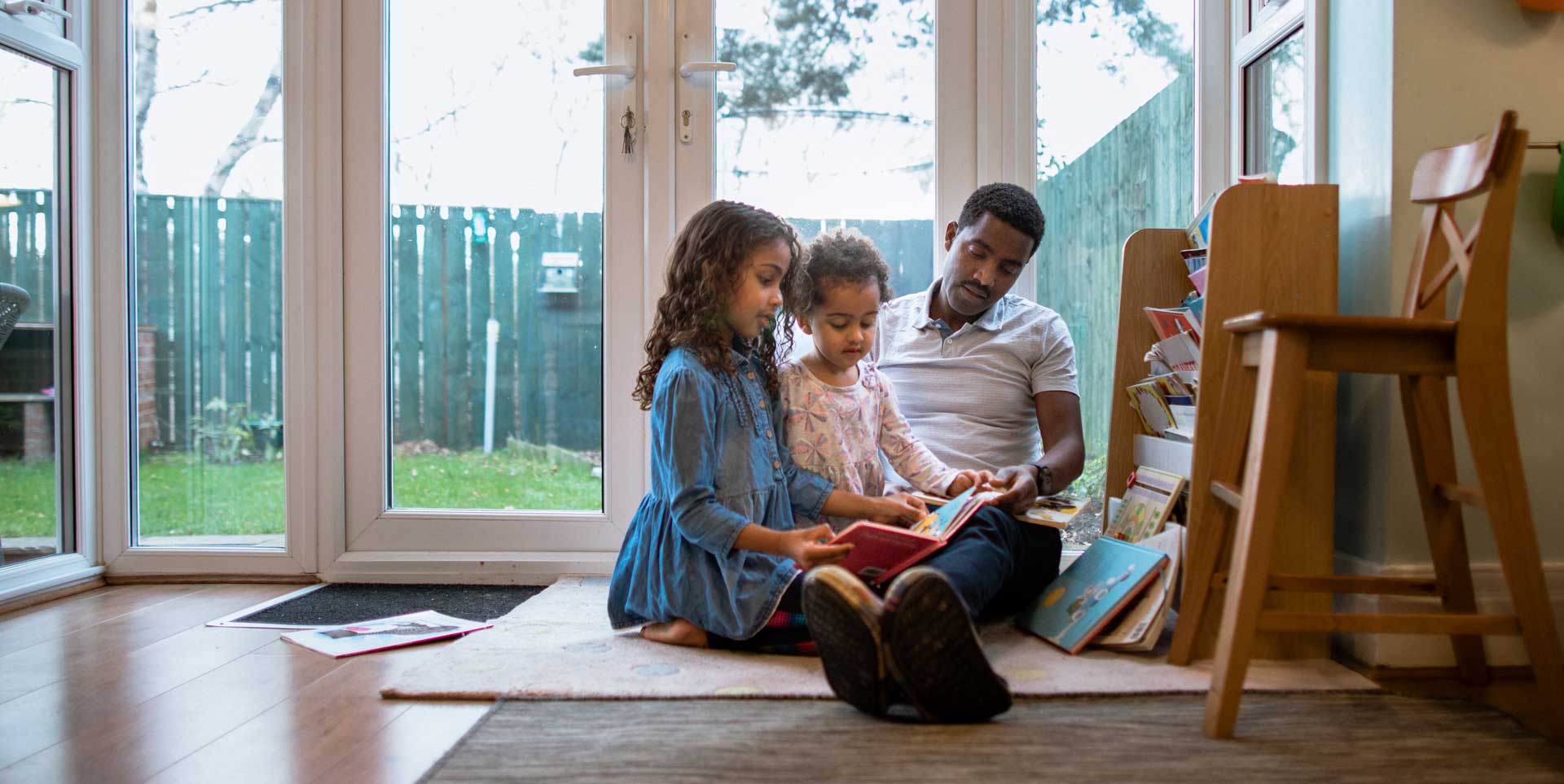Learning to Read: How Children Develop Literacy

Reading and writing are integral for everything we do on a day-to-day basis, so helping your child to love literacy is important – and it can be a lot more fun than you think.
The Joy of Stories
Babies in the womb can hear sounds as early as 18 weeks, so as well as talking regularly to your bump try reading some simple stories too.
Once baby is born, story time can be relaxing and enjoyable for both of you, and it's an ideal component of a bedtime routine - even in the earliest days.
Listening to stories can also help your baby’s language development as they are taking in information and beginning to learn about speech patterns. Children tune in to the rhythm and cadence of our voices, especially the familiar voices of their parents and caregivers. For example, while initially the rhythmic phrase, "Brown bear, brown bear, what do you see?" may not hold meaning, your baby is taking in the sounds of language and how they fit together.
When your baby sees a picture of a red bird in the book and you name the bird, they begin to make the connection between what you say and the picture of the red bird. The more you read that book, the stronger the connection. Repetitive storylines make books fun, engaging, and easier to remember.
Reading to babies is not only a lovely way to inspire a love of books from infancy but is also an important way to support their vocabulary— beginning with their understanding vocabulary and later developing into speaking vocabulary.
Starting School – Fun with "Foniks"
Most schools today are teaching children to read through phonics. Each letter is named according to the sound it makes, for example, the letter "A" is called "ah" rather than the traditional "ay". Children break down each word into their individual sounds and then blend the sounds to make words. So "dog" would be broken down to the "d" "o" and "g" sounds then strung together to make the word. When they are first learning you will hear your child pronounce each letter before they finally produce the full word.
Keep in mind some words don't follow the phonics rule. These may be given to your child as a list of 'tricky' words. Use these words, even spelling them out, whenever you can. Sometimes pointing out the context of the word in the sentence may help them to decipher the meaning and thus the word itself. You'll see in most cases the child will sound it out phonetically and then say the 'right' word as soon as they figure out what it is. Speak with your child's teacher so that you can develop an understanding of what is going on at school and what you can do to help at home.
At Home – A Lifelong Love of Books
Although reading is often assigned as homework, it's important to ensure that your children learn to love reading, not just do it. Help them to associate books with relaxation and fun. Encourage them to snuggle down on their bed or in a comfy chair with a good book and enter an exciting world of story.
Talk about your favourite childhood books and stories and read them with your children. There is loads of information about books online and whatever topic or theme your child is excited about right now, we can guarantee there's a children's book about it.
What you can do:
- Learn the phonics alphabet with them
- Sound out and say words you can see when you're out and about
- Explore the fun computer games and apps which are available to help with learning to read
- While reading to them you can ask them to start sounding out and saying easy words
- If they are struggling, help them by pointing to the appropriate visuals
- Don't compare your child's reading level to other children in their class or siblings
- Visit your local library when you can do so
- Be sure not to pressure your child about reading – it should always be enjoyable
For a wealth of further information and advice, plus book recommendations and videos of children’s authors reading their stories visit The Book Trust.
If you enjoyed this article and found it to be useful, you can check out more of our early childcare resources in our Family Resource Zone!
And, if you’re not yet a Bright Horizons parent, but are interested in what our nurseries can offer your child on their exciting educational journey, book a personal tour at your local nursery today!





